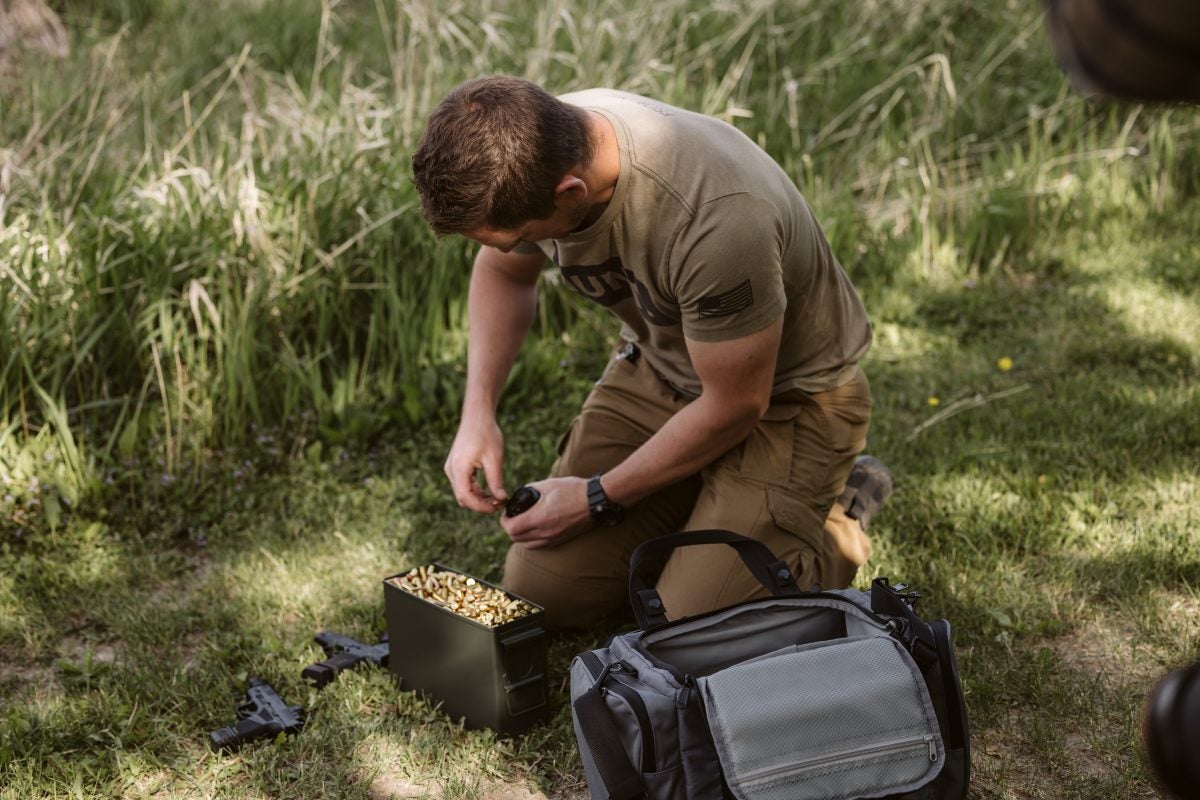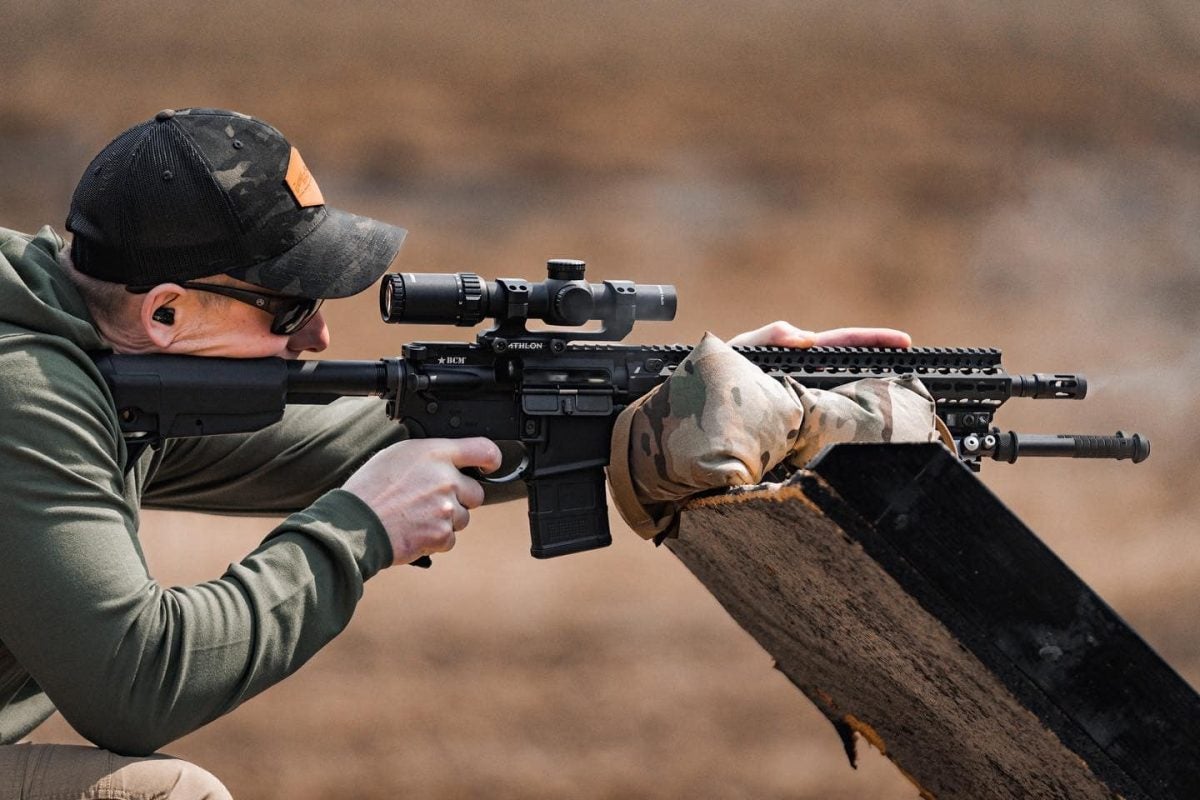Teaching Others About Firearms – Classroom Ethics
Phil Godding 06.13.22

Last month I wrote about what needs to happen in the area of ethics and training. In short, you will be held to some ethical standard should you use your weapon so why not make that choice ahead of time? An example comes from one of my go-to relaxation shows on Netflix: “Meat Eaters.” The host, Steven Rinella, will leave tags unfilled rather than violate his ethics of humane shots and resource management. At least on the screen, his spoken ethics and behavior match.
A personal example is that I don’t eat poultry so I don’t go duck or pheasant hunting; although, I love working a dog in both situations. You missed a lot last time – go check it out! This time I’m going to talk about your instruction time to further muddy the ‘ethics waters’ and talk about classroom ethics management. After all, instructors need to have ethics in the classroom, too, but first, a little observation about culture and society.
There is a lot of anger and mistrust right now across all aspects of our culture and society. Want to write a popular song? Sing that you are mad, bitter, and hurt. Feeling deprived? Write an electronic post that says you are being offended and your rights are violated. Want to sell something? Say that the buyer deserves that 1930s era revolver with no firing pin, a cylinder that won’t turn, and a patina that could also be called simply “all scratched up” because, well, if you can convince someone they deserve something they will buy it no matter what the condition.
You can motivate anyone with anger, insults, and deprivation – for a little while. None of this motivation lasts for more than a few moments at best. This motivation is all about adrenaline and is generally not all that productive. So, what is your motivation to be professional in the classroom and how do you attempt to model your professional ethics when teaching students who are all over the place in considering ethics and behavior? What I am talking about is the motivation to do the right thing at all times.
At worst the motivation that comes from knee-jerk thinking (really non-thinking) will likely get you or someone else killed. The best gun teaching involves avoiding trouble, managing expectations, and being the best gun owner who observes everything and avoids trouble when at all possible. This is all thought intensive.
An instructor needs to be able to articulate their teaching motivation for being a gun carrying protector. Every class, back deck round table, or garage session has at least one person who has a singular pat answer for every scenario you might discuss, so you need to be ready. Here are a few of my non-favorite answers to everything I need to discuss:
- “Shoot and then drag them outside.” [I have also heard shoot outside and drag them inside – go figure]
- “Shoot them all and let God sort them out.”
- “Shoot them in the knee” [or better yet the hand like John Wayne used to do in the movies]
- “I would rather be judged by 12 than carried by six.”
- “I have taught my dog how to kill and that is not illegal.”
I would posit to you that those who utter these phrases for every situation or scenario you present have drunk deep in the shallow pool of anger and social manipulation. At the very worst these class members are disruptive, and they may be reinforcing some easy solutions for complex issues that will get them (and their classmates) in trouble. At best they are taking time and attention away from students who really want to learn. Why would the person continue to inject the same wrong idea when you have content you have to cover?
- They think teaching is easy and you are complicating some basic facts of life.
- They think they should be teaching.
- They believe that constitutional carry means never having to say you are sorry.
- Every solution has a simple problem – wait, think about it before you scratch your head.
- They were class clown and are reliving their glory days in our class and on your dime.
- They are willing to face an attorney or judge with the same language they toss out in your class.
- They are jealous of your handouts or slide deck.
- This one will hurt: You have lost control of the classroom and your students.
First, let us talk about the students. Not all class miscreants are the same. The worst offenders in my experience are those young men who think by virtue of their gender and their momma’s love they know it all already. You can tell by their sullen disposition and slumping posture they feel listening is optional. These young scholars believe there is nothing to be taught about safe firearm handling and marksmanship because they know it all. By the way, when you stop and ask how they know so much they can’t give you any reasonable answer except “I’ve been shooting my whole life” – forgetting that their whole life is really only a dozen years – but I digress. Invariably the young cringe when they find out about a written test or an oral presentation.
Here is another fun fact: those who claim skills and knowledge superiority will be outshot during range time by a first-time gun handling shooter who hasn’t been messed up by bad advice from his or her older brother. You know the traits of the better student: while you droll on about situational awareness, sight picture, and smooth trigger pull your star pupil is taking copious notes and looking down his or her pointed finger trying to master this sight picture concept. Those with less willingness to learn have strained their eyeballs doing eye rolls and have a callus on their finger from tapping their pencil waiting to get to the range and an opportunity to show off their inherent self-taught, trigger-jerk style of marksmanship. Yes, that is what it comes down to: willingness to be taught. Are you, the instructor, willing to get their attention?
Next, in the line of offensive offenders are those who are, as The Car Talk guys used to say, “unencumbered by the thought process.” They think every rule or conceptualization is just plain silly and they are not afraid to tell you that. Why would you go on and on about Castle Doctrine… Reasonable Person Test… or Probable Cause when you can just “shoot and ask questions later,” or “shoot, shovel, and shut up.”
“What to do? How do you regain control of the classroom?”
- Behavioral cues – this requires your best “evil eye” look.
- The tone of voice that your mother used when you were on the edge of her nerves.
- Simply stop, fold your hands, and stare into space (eventually peer pressure will get to them).
- Catch them mid-snide comment and ask them to share their thoughts with the class. It worked with them in 3rd grade, it might work now.
- Do a little verbal sparring. Address them as “Johnny One Note” and don’t stop using that label when you call on them until they get the hint.
Warning – this could lead to an accusation of microaggression by your student – but we are clearly headed to “Plan B” anyways. It all depends on your relationship with the student. This tactic might backfire in another way, too. I have a mildly famous friend who is a social commentator and when he gets labeled as a “Johnny One Note” he rather likes it. You might need to go to “Plan B” if behavioral cues do not do the trick.
Classroom Ethics – “Plan B”
“Plan B” is to call a recess, pull the self-absorbed student aside, and ask them not to disturb their peers. If they insist on knowing who they are disturbing say truthfully: “Me… you are interrupting the flow the class and we’ll be here for hours more if I have to keep correcting your comments to the class.” Remember you are the professional and it is your responsibility to manage the class.
Next in line is to draw that proverbial line in the sand. I do this in front of their peers. The state, the local sheriff, some national organizations, your insurance company, and your accountant have all deemed you an authority and a professional. It might be time to simply have a presence in the classroom, deck, garage, or range office that says “for the purposes of this topic I am the authority and I’m teaching you what is required by the [fill in the blank].” You could go on and tell them to get their own certifications, training, credentials, and professional relationships, but you are the instructor of record for this class so your answer is the only one that counts. I go so far as to say only I can talk politics, comment on specific brands, or tell endless stories (but you know from my earlier writing how I really use stories).
Finally – last resort – nicely ask them to leave. Refund their money, offer them the doughnuts for their drive home, and note on their registration form they withdrew. When they make a bad decision you want documentation that they did not learn anything from you. Think about it. Do you really want to take this person to the range, give them a loaded firearm, and then they are shooting off their mouth and firearm unencumbered by the thought process? Me neither…
Classroom/garage floor/deck chair management is never easy, but if you know why you are teaching… if you know what ethics drive your decision making… if you act like the professional you are… things will be fun and educational for everyone involved.




